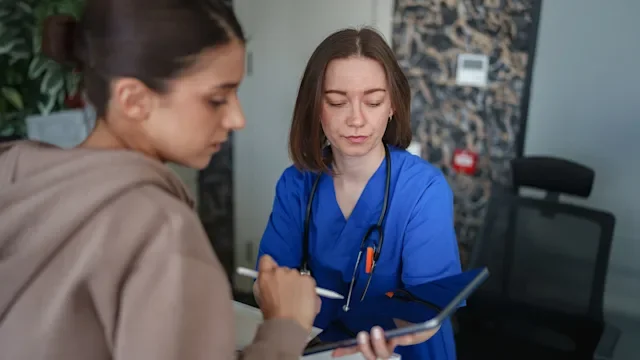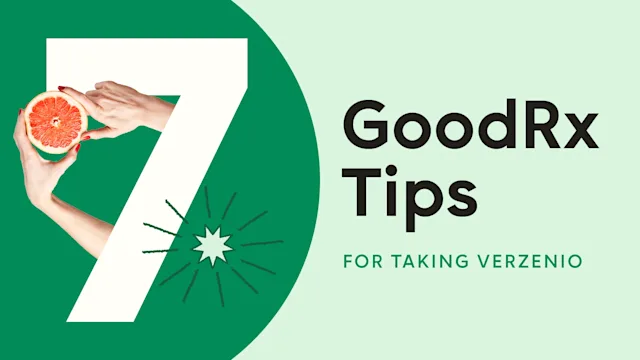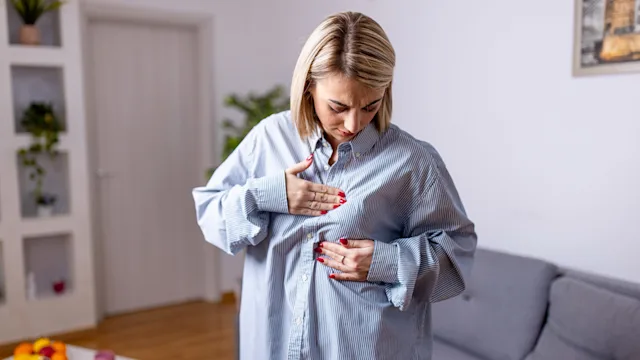Key takeaways:
A breast cancer diagnosis brought hurdles that Theresa Lana never expected she’d have to face in life.
The toll was gradual — on her confidence, her marriage, and the things she held dear.
She learned to find strength in the moment and to take things a day at a time.
Theresa Lana was lying in bed, drifting off to sleep, when she first felt the lump that would change her life.
It was a lump in her left breast, hard enough and large enough to make her feel immediately alarmed. She gently jostled her husband awake to get his opinion, leaning in for reassurance. In that intimate moment, neither of them could imagine the journey that lay ahead, just one year into their marriage, or the shattering effects it would have on their relationship.
After that night, everything moved quickly and in a blur. A call to Theresa’s doctor the following morning led to an immediate referral to a breast specialist, followed by a needle biopsy, and imaging — and then confirmation.
The doctors had found a 5-centimeter tumor. And Theresa was diagnosed with stage 3 breast cancer, at the age of 44.
“It's one thing to hear the word cancer. But it's another thing when you finally learn the specifics about it: how big it is and how aggressive the cells are,” Theresa says. “You just try to make sense of it.”
A dark Christmas
The diagnosis felt surreal, Theresa recalls. She had no family history of breast cancer. She was young and enjoying the honeymoon stage of a new marriage. And she had received a negative result on a mammogram less than two months prior.
She didn’t have much time to let the reality of her new situation sink in.


She met with several specialists in quick succession and settled on a treatment plan: a cocktail of chemotherapy medications on a 2-week cycle, to shrink the tumor, and a mastectomy in the spring.
“I found power in learning,” Theresa says about her desire to be involved in her treatment plan. “The fear was still there, but it subsided substantially.”
Theresa was diagnosed in December 2004 with her husband and best friend by her side. A few weeks later, after the holiday season was over, she told the rest of her family and friends.
The relationship toll of cancer
Going into her treatment, Theresa had some sense of the toll it would take on her life.
Before she started chemotherapy, she was most anxious about the possibility of suffering from severe nausea. As the treatment progressed, she was most upset about the weight she gained from her steroid medication. And, when her hair fell out, she adamantly refused to see herself in the mirror without a cap on.
But the biggest, and most unforeseen, impact of her treatment was on her marriage and on her identity. As her breast cancer journey progressed, Theresa’s view of herself temporarily changed: She looked different physically, stopped thinking about having a child, and put her dreams on hold. For a while, she says, she was a different person.
“I lost my confidence, my self-esteem, and my power,” she says. “Everything, totally, was stripped.”
Without a doubt, Theresa says, the breakdown of her marriage was because of her breast cancer diagnosis.
“It’s not uncommon, from what I understand, in retrospect, for relationships to fracture,” Theresa says. “It definitely drew the line in the sand in our marriage.”
The damage was gradual.
In the beginning, Theresa and her husband were so focused on getting through the day that nothing else seemed to matter. Fueling the flames of romance and sexual connection was the last thing on their minds as they battled through long months of chemotherapy, radiation and surgeries.
“We both were kidding ourselves that that wasn’t as important as being alive,” Theresa says. “I think, we just became really good friends and the sexual part of it really never got back on track.”
She went through physical changes like weight gain and hair loss and had breast surgeries, including a mastectomy and later an implant. Her energy levels waned. She experienced mood swings and entered chemo-induced menopause at 45 years old. And, as a result of everything, the way she viewed herself shifted for a period of time.
“He respected who I was and what I went through, but, physically, it really wasn't what he signed up for,” Theresa says.
Theresa and her former husband are now divorced but remain on friendly terms, occasionally meeting for dinner. Theresa gives him credit for being very supportive throughout her treatment and being what she needed at that time.
Finding strength in the moment
Breast cancer can drive relationships apart, but it can also bring them closer together. Theresa says she feels blessed by the strong network of “ride or die” friends and family members she had to help keep her upright, pointing to her experience as an example for people looking to support someone going through breast cancer.
“Each friendship rhythm is different. And I think it's important for you to choose who you want to go with you when you get your wig, who you want to sit with you during chemo,” she says.
Having the right person for the situation — someone who sees you for who you are outside of your diagnosis and can be a source of strength in the moment — makes all the difference, she says.
“Some days you need tenderness; some days you need strength. In some minutes, you need laughter. And in some seconds, you just need to let it all out,” Theresa says.
She remembers the day she went shopping for wigs, accompanied by a close girlfriend.
“I had fun with it: I had a red wig and a black wig and a short wing and a long wig,” Theresa says. “There are ways that you need to flip [the hard moments] from negative to positive.”
An often overlooked source of support
Even with a supportive and loving entourage, breast cancer can be a lonely journey. Theresa says she would see sadness in the eyes of the people she loved and feel pressure to give an appearance of strength to alleviate their fears.
“I felt that I needed to be strong because if I showed weakness, and they saw I'm weak, then they would worry more,” she explains. “And that became isolating for me.”
She ended up finding support in a place she hadn’t originally considered: a therapist’s office.
“That was one of my biggest support systems,” she says. “Therapy is your time to say what the heck you want without worrying another person that you love.”
Theresa saw a mental health provider who specialized in supporting women with breast cancer and was familiar with the side effects of the medications Theresa was taking. Finding a therapist with that kind of background is something that Theresa can’t recommend strongly enough.
“Unfortunately, people don’t think about that in the beginning,” she says. “You’re in the middle of trying to save your life. You’re not thinking about the emotional aspect.”
Addressing the emotional impacts of a diagnosis like breast cancer and the toll it takes on mental health, relationships, and self-image shouldn’t be an afterthought, Theresa says. She has been in remission for more than 15 years and has become a staunch advocate because of her experiences, raising almost $1 million for breast cancer awareness and screening programs with Team T-Birds. She says that she shares her story in the hopes of helping other women like her and their loved ones.
“If I can help one woman — whether it’s financially, physically, or emotionally — then my diagnosis will not be in vain,” she says.

Why trust our experts?

















